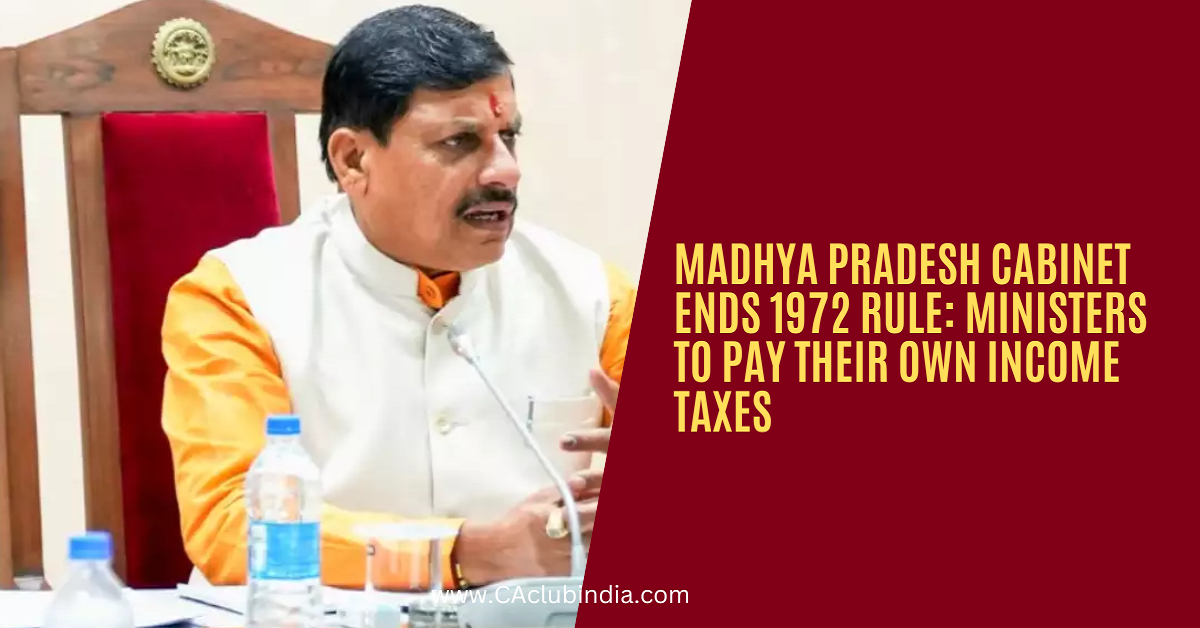Historic Decision by Madhya Pradesh Cabinet to End Tax Exemption for Ministers
In a landmark move, the Madhya Pradesh Cabinet decided on Tuesday that state ministers will now pay their own income taxes on salaries and allowances. This decision overturns a 1972 rule under which the state government covered these taxes for ministers.

Chief Minister Leads the Initiative
The proposal was introduced by Chief Minister Mohan Yadav during the Cabinet meeting. Urban Administration Minister Kailash Vijayvargiya announced the decision, stating, “The Chief Minister proposed that ministers should pay their own income taxes on allowances, rather than the state government covering these taxes. The Cabinet has decided to end the provision allowing the state to pay these taxes.”
Opposition Criticism
The decision has been met with criticism from the Congress party. State president Jitu Patwari criticized the BJP government, suggesting that efforts should be directed towards curbing wasteful expenditures such as “purchasing aeroplanes, decorating official bungalows, and buying luxury cars.”
Legal Background
According to section 9K of the Madhya Pradesh Ministers (Salary and Allowances) Act, “No income tax shall be levied on any Minister, Minister of State, Deputy Minister, or Parliamentary Secretary for all allowances payable to them, for the facility of a furnished residence provided without payment of rent, and for other perquisites permissible to them under this Act.” The act stipulated that the state government would pay the applicable income tax at the maximum rate for ministers.
Financial Implications
Officials from the Finance Department explained that the 1972 law aimed to ensure ministers from poorer backgrounds did not bear the income tax burden. However, the new decision is expected to result in “direct financial savings for the state,” which can be redirected towards development projects and public services.
An official remarked, “Ministers paying their own taxes fosters a culture of responsibility and aligns with public expectations of transparency in governance. This will also reduce unnecessary expenditure from the state Budget, allowing funds to be redirected to other essential services and development projects. The state is currently reeling from financial burden…”
Similar Moves in Other States
Madhya Pradesh is not the first state to make such a change. In 2019, the Uttar Pradesh Cabinet amended the law to require the Chief Minister and other ministers to pay their own income taxes. Similarly, in 2022, the Himachal Pradesh Cabinet decided that all ministers and MLAs would pay their own income taxes, a cost that had previously been covered by the state government.
Conclusion
The Madhya Pradesh Cabinet’s decision marks a significant step towards financial responsibility and transparency in governance. By ending the practice of the state government paying ministers' income taxes, the state aims to better allocate resources and reduce unnecessary expenditures, thereby fostering a more accountable and efficient administration.




 CAclubindia
CAclubindia


